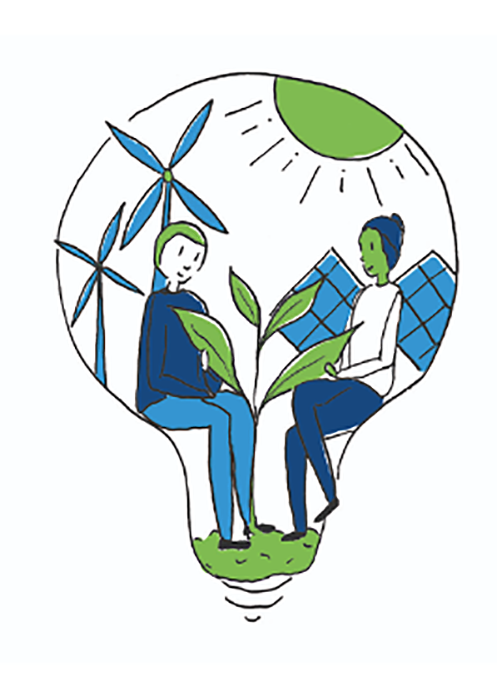Active Global Citizenship
Active Global Citizenship within NHS Scotland is based on three key principles: the understanding that inequity leads to health inequality; poverty causes poor health; and climate change is a public health emergency.
As a worker within NHS Scotland, there are many opportunities to not only impact directly on the health of the population here in Scotland, but also indirectly on global health, through consideration of the potential impact that daily choices can have on people with low or limited access to resources.
The UN Sustainable Development Goals (SDGs) have been used as a framework with which to map possible “touch points” for NHS Scotland staff to reflect, to highlight case studies to inspire, or organisations to network with.

The Launch Event
We launched the Active Global Citizenship resources (see below) at COP26, at an event with Emily Broadis (Specialist Registrar In Public Health NNS Ayrshire And Arran), Charlotte Dwyer (Director Scotdec) and Bernadette O’Hare (Senior Lecturer University Of St Andrews). See the live recording which includes Q&A, to find out more about how the resources came about and how you can use them in your working day.
The Resources
We encourage you to explore the resources below, work through the activities, and take time to consider your own values and how they may align to the SDGs. We hope that by taking this time you will feel more informed, inspired, and motivated to establish Active Global Citizenship in your daily work life.
- NHS & Sustainable Development Goals booklet – This resource introduces the Sustainable Development Goals, Global Citizenship Education, and a series of Activities for individual and group use. Developed through a partnership between the Scottish Global Health Co-ordination Unit within NHS Scotland, Edinburgh-based education charity Scotdec, and the Bridge 47 – Building Global Citizenship network.
- Digital Cards – Digital resource of 17 postcards, one for each of the Sustainable Development Goals with reflective questions and examples of relevant networks, case studies, or further resources to explore.
Thanks to Scotdec and Bernadette O’Hare, the University of St Andrews, for their contribution to developing these resources.
The Training materials
- Our Training Guide has been created by Scotdec in collaboration with the NHS Global Citizenship programme to support professional learning across all sectors of NHS Scotland. They can also be used in association with the NHS & Sustainable Development Goals booklet and digital cards.
PowerPoints for training sessions
- The introductory Powerpoint session supports the delivery of the activities outlined in the booklet.
- Our second Powerpoint ‘Home and Away’ relates to SDG 1: No Poverty and SDG 10: Reduced inequalities. In this powerpoint we focus on the causes and impacts of poverty local and globally, and explore health inequalities and the role NHS Scotland can play in reducing these. They can be used in conjunction with the digital cards and will act as a stimulus for exploring some of the reflection questions on the cards.
- Our third Powerpoint is about Responsible Consumption, it connects to SDG 12: Responsible Consumption and Production and SDG 13: Climate Action. Here we concentrate on how local actions have global impacts, a better understanding on the local significance of global issues and the affects climate change has on public health.
- Lastly, we have our ‘Power and Partnership’ Powerpoint, where we reflect on power, identity and privilege and explore SDG 17: Partnership for the goals.
Useful links
- Active Global Citizenship in NHS Scotland – An article by Dr Emily Broadis and Charlotte Dwyer in Issue 34 of Policy and Practice: A Development Education Review (Spring 2022)
- How the NHS is embracing global citizenship – A reflective piece authored by Dr Emily Broadis, Chair of the NHS Global Citizenship Lead Champions network.
- The International Development Education Association of Scotland (IDEAS) is a network of organisations and individuals involved in Development Education and Education for Global Citizenship across Scotland.
- The Faculty of Public Health offer a number of resources on Climate Change and Health
- Bridge47 offer a resource library of global citizenship materials
- Scotdec provide a range of useful resources on global citizenship – primarily aimed at educators and your people
- CISV International provide links to a range of books, movies and videos relating to global citizenship
- University of Strathclyde Centre of Sustainable Development
Feedback and AGC in action!
Please fill in the feedback form below to give us your reflections on the resources.
Here are some thoughts from NHS staff who have already used the resources.
“They are nice cards which make the topics approachable, and there are good local examples. I trialled them at a team meeting with 9 other employees, showing the cards and asking staff of ways they could use them to help open conversations with patients/staff.” Julie Jones, Physiotherapist, Lothian NHS
“I really liked that the resources included examples from Scotland of the SDGs in action. The graphics and size of the cards made them accessible and easy to use. The questions were simple but encouraged reflection within the team. People were really keen to engage with resources and I was amazed at how naturally team members made connections between their own lives and experiences and the SDGs. The cards encouraged reflection and allowed for broader discussion about the place of our team and NHSS in the global setting.” Alison Mcluckie Consultant Paediatrician NHS Lothian
Explore and use our hashtag on Twitter! #GlobalCitzNHS